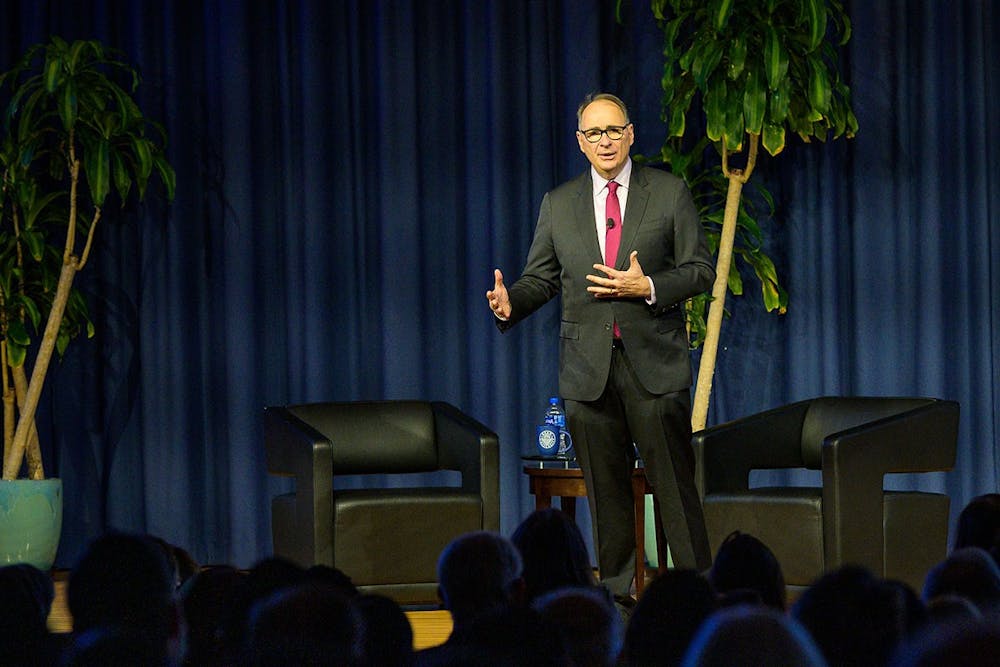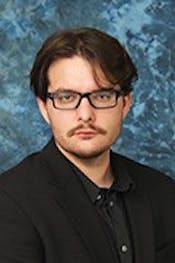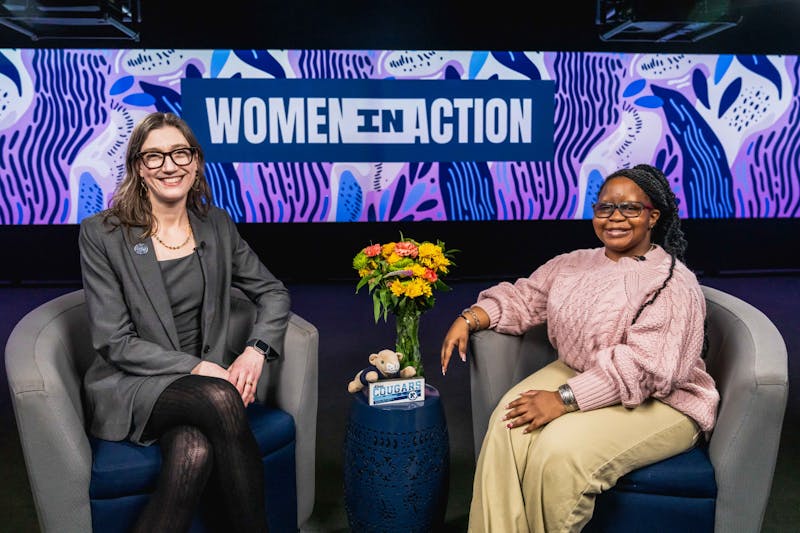On Thursday, Nov. 21, political strategist and commentator David Axelrod visited Kean University for the Distinguished Lecture Series, an ongoing effort to host the public sphere's news-making intellectuals. His lecture, and a followup Q&A, were held in the STEM Auditorium at 4:30 p.m.

Admission to the event was free, but advance tickets needed to be reserved to guarantee entrance. 300 guests crowded the auditorium, with many more gathering in the upper floors of the STEM building to view the lecture by live-stream.
Axelrod is well known for his commentary on CNN, as well as his podcast, The Axe Files. Through each, he engages in rigorous discussion and debate with other noteworthy strategists and pundits from across the political spectrum, and throughout the world. Since 2013, Axelrod has directed the Institute of Politics, which provides opportunities for learning and involvement to students interested in public service and political careers, through his Alma Mater, the University of Chicago.
Perhaps most notably, Axelrod led the campaign strategy for Barack Obama's historic presidential victory in 2008, which saw then-Senator Obama win a decisive electoral victory of 365 votes to 173 against John McCain (as per The New York Times), as well as for the successful 2012 re-election effort. Between elections, he served as the former president's senior adviser.
The common theme reiterated throughout Axelrod's lecture and the following Q&A was "belief." The lecture discussed belief in the political and governmental systems that tether together the nation's diverse and unique communities, belief in the future of America and belief in oneself through diligence and passion.
It is also the title of his 2015 book, Believer: My Forty Years in Politics, which reviews the lessons of Axelrod's time as a political reporter in the complex Chicago scene of the 1970s and 1980s, as well as the decades he spent concocting strategies for 150 campaigns across the nation.
In the book, Axelrod describes an unrivaled formative experience: watching then-candidate John F. Kennedy address the citizens of Axelrod's native Stuyvesant, New York, during his 1960 campaign for the presidency. At five-years-old, Axelrod was hooked on politics. He may not have yet understood every word - he joked that, years later, he "Google-searched" the speech as a reminder - but the vital energy forged between Kennedy and the crowd illustrated to a young Axelrod that politics was a road to both personal fulfillment and worthwhile contribution to the world. Perhaps most astutely, he learned that those ambitions are not mutually exclusive.
That was a lesson Axelrod's never forgotten. A certain optimistic idealism seems implicit in Axelrod's role as the director of the Institute of Politics, where he encourages the political careers of wide-eyed young students. His belief in the future of American politics rests on the effort of a new generation to answer the challenges he has addressed for decades.
Addressing the current political times, Axelrod said, "When our system is being tested, let us fight for it. Our rights to political involvement are also an obligation: The nature of democracy is that we're a self-reflecting system."
It was the commitment to these philosophies that brought Axelrod to the decision, in the Summer of 2002, to try to help Barack Obama win a contested U.S. Senate seat in Illinois. According to Axelrod, it was also an effort to "renew [his] sense of idealism" in American politics. Their success over the decade that followed seems to have renewed that idealism in millions of Americans, too.
And Axelrod, who coined the slogan, "Yes We Can," remains hopeful.
"Despite what you see on your TV...it's not about whether the red team or the blue team wins, it's about how we use the tools bestowed to help people," said Axelrod. "You have the tools to make an enormous difference."
Axelrod concluded his lecture challenging and inspiring the young people in the audience.
"Never forget why we do the work...why you donate yourself to public service: Because that work can change lives," said Axelrod.
Kean's Distinguished Lecture Series continues in the Spring of 2020 with human rights and community leader Martin Luther King III (February 13) and columnist and futurist Jamie Metzl (April 27).







